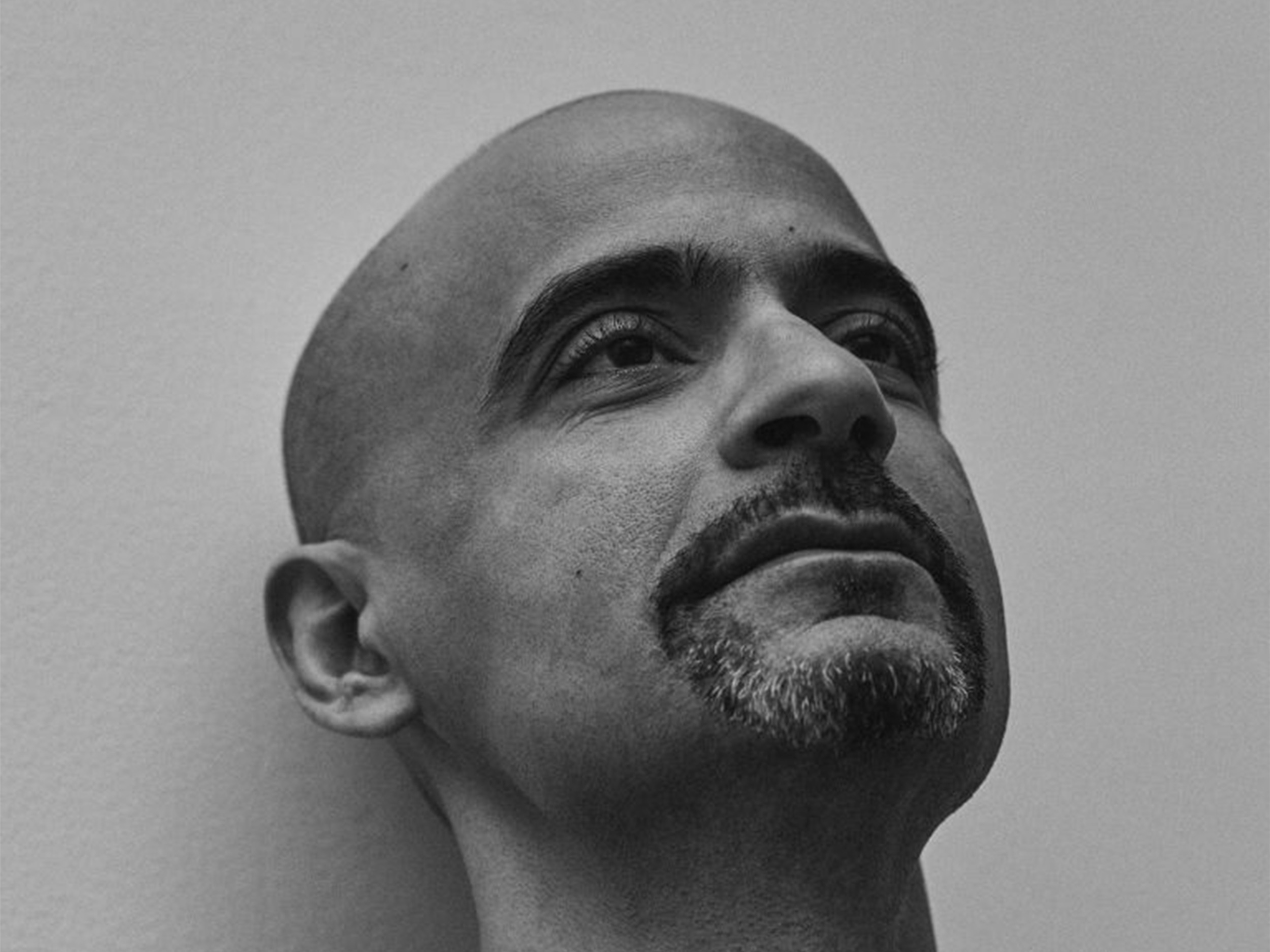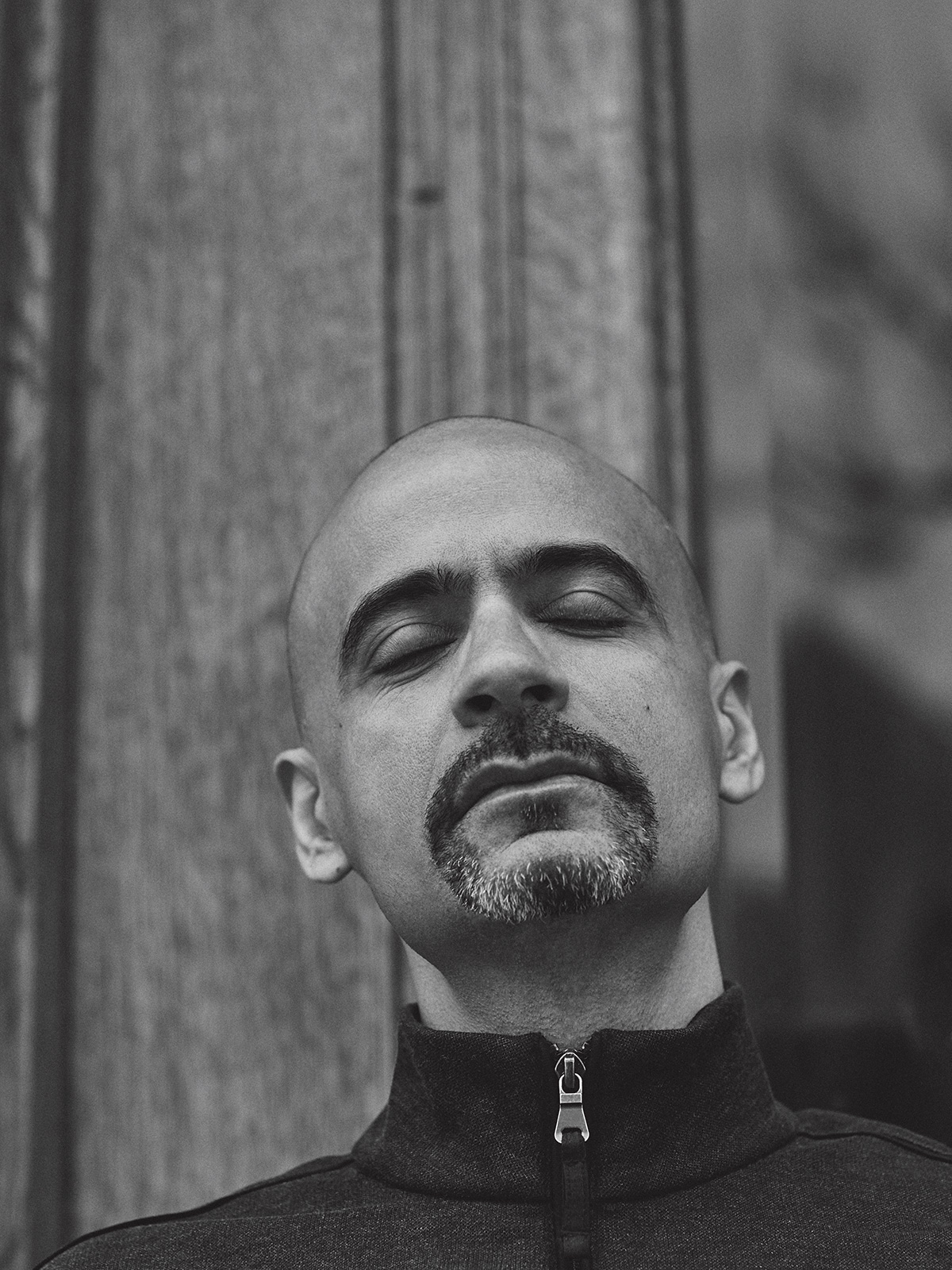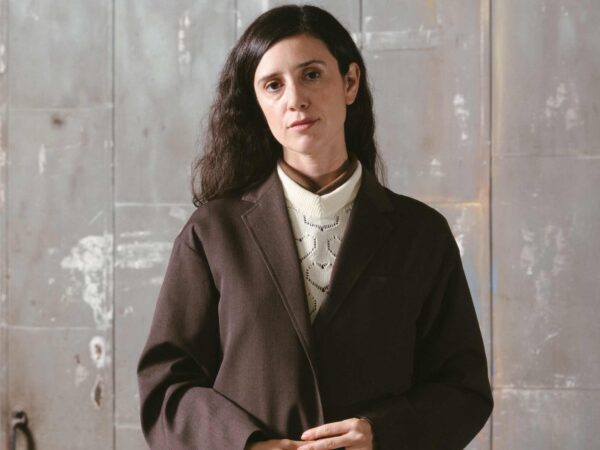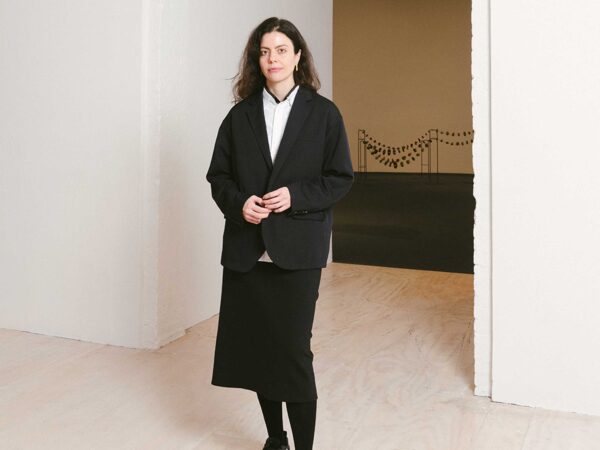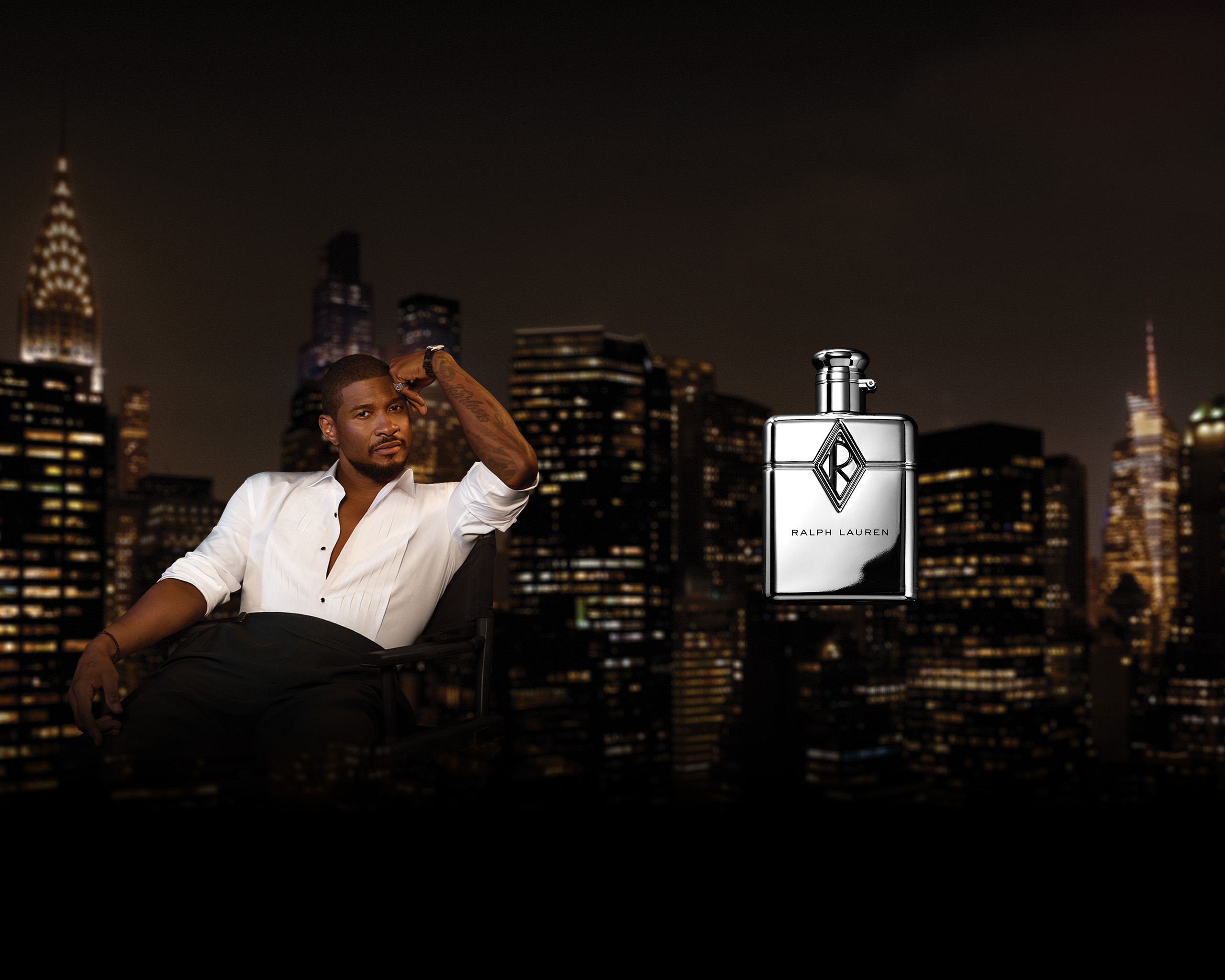Writer and M.I.T. professor Junot Díaz was born in Santo Domingo, Dominican Republic, in 1968, and lived there with his mother and grandparents while his father worked in the United States. Six years later they would join him, immigrating to Parlin, New Jersey, where the younger Díaz would soon be confronted by a world of cultures—some seemingly shared to his African Caribbean upbringing but vastly different for the most part—that would inspire questions of social identity and intimacy. His written works in the years since, irredeemably earnest prose about life, love, and the immigrant experience, have consistently tackled these tangents with confident humor. Díaz’s 2007 novel “The Brief Wondrous Life of Oscar Wao,” which won the Pulitzer Prize for Fiction the year following, paralleled these maturities in magical realism and multigenerational storytelling, touching on Rafael Trujillo’s dictatorship and black denial. “This Is How You Lose Her,” in 2012, zoomed in on this world, too, observing romance through the many secular chains that pull it down. He was awarded the MacArthur Fellowship, popularly known as the Genius Grant, that same year.
Born Chloe Ardelia Wofford, the novelist and Princeton professor emeritus Toni Morrison hardly needs an introduction. Her works, vivid epics of lost love, have documented African American history in both times of beauty and peril. She’s received the Medal of Freedom (2012), the National Humanities Medal (2000), the Nobel Prize in Literature (1993), and the Pulitzer Prize for Fiction (1988), in addition to an unmeasurable list of accolades for decades of contributions to the arts. Junot first met Morrison at an event for a literary publication they both contribute to: “I was incredibly nervous and incredibly honored,” he remembers, “I still am today.” Here, the pair reconvene to speak about black identity and having the credence to keep writing.
Above The Fold

Sam Contis Studies Male Seclusion

Slava Mogutin: “I Transgress, Therefore I Am”

The Present Past: Backstage New York Fashion Week Men’s Spring/Summer 2018

Pierre Bergé Has Died At 86

Falls the Shadow: Maria Grazia Chiuri Designs for Works & Process

An Olfactory Memory Inspires Jason Wu’s First Fragrance

Brave New Wonders: A Preview of the Inaugural Edition of “Close”

Georgia Hilmer’s Fashion Month, Part One

Modelogue: Georgia Hilmer’s Fashion Month, Part Two

Surf League by Thom Browne

Nick Hornby: Grand Narratives and Little Anecdotes

The New Helmut

Designer Turned Artist Jean-Charles de Castelbajac is the Pope of Pop

Splendid Reverie: Backstage Paris Haute Couture Fall/Winter 2017
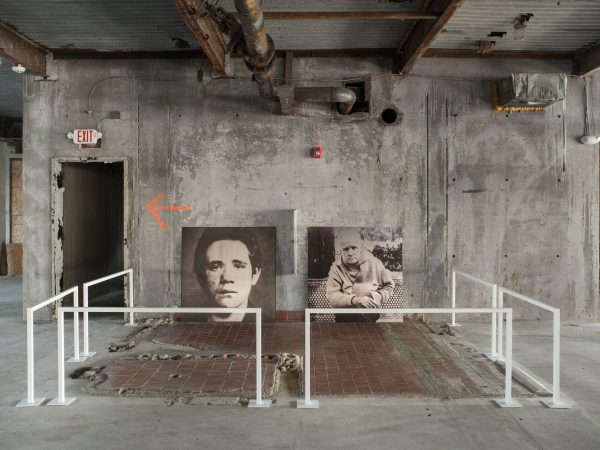
Tom Burr Cultivates Space at Marcel Breuer’s Pirelli Tire Building

Ludovic de Saint Sernin Debuts Eponymous Collection in Paris

Peaceful Sedition: Backstage Paris Fashion Week Men’s Spring/Summer 2018

Ephemeral Relief: Backstage Milan Fashion Week Men’s Spring/Summer 2018

Olivier Saillard Challenges the Concept of a Museum

“Not Yours”: A New Film by Document and Diane Russo

Introducing: Kozaburo, 2017 LVMH Prize Finalist

Introducing: Marine Serre, 2017 LVMH Prize Finalist

Conscious Skin

Escapism Revived: Backstage London Fashion Week Men’s Spring/Summer 2018

Introducing: Cecilie Bahnsen, 2017 LVMH Prize Finalist

Introducing: Ambush, 2017 LVMH Prize Finalist

New Artifacts

Introducing: Nabil Nayal, 2017 LVMH Prize Finalist

Bringing the House Down

Introducing: Molly Goddard, 2017 LVMH Prize Finalist

Introducing: Atlein, 2017 LVMH Prize Finalist

Introducing: Jahnkoy, 2017 LVMH Prize Finalist

LVMH’s Final Eight

Escaping Reality: A Tour Through the 57th Venice Biennale with Patrik Ervell

Adorned and Subverted: Backstage MB Fashion Week Tbilisi Autumn/Winter 2017

The Geometry of Sound

Klaus Biesenbach Uncovers Papo Colo’s Artistic Legacy in Puerto Rico’s Rainforest

Westward Bound: Backstage Dior Resort 2018

Artist Francesco Vezzoli Uncovers the Radical Images of Lisetta Carmi with MoMA’s Roxana Marcoci

A Weekend in Berlin

Centered Rhyme by Elaine Lustig Cohen and Hermès

How to Proceed: “fashion after Fashion”

Robin Broadbent’s Inanimate Portraits

“Speak Easy”

Revelations of Truth

Re-Realizing the American Dream

Tomihiro Kono’s Hair Sculpting Process

The Art of Craft in the 21st Century

Strength and Rebellion: Backstage Seoul Fashion Week Autumn/Winter 2017

Decorative Growth
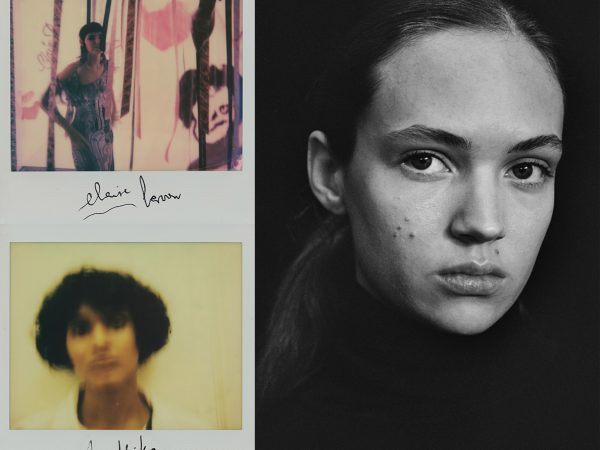
The Faces of London

Document Turns Five
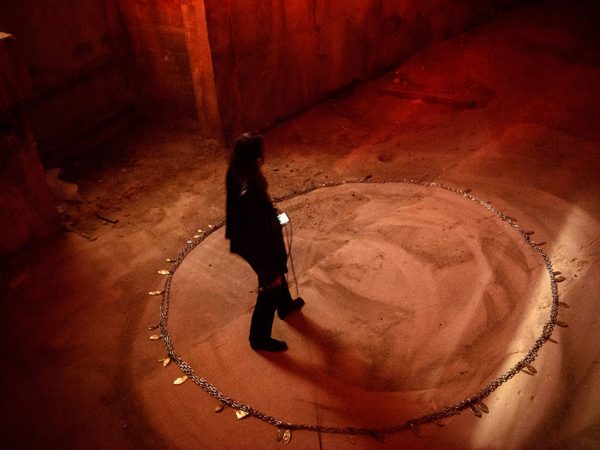
Synthesized Chaos: “Scholomance” by Nico Vascellari

A Whole New World for Janette Beckman

New Ceremony: Backstage Paris Fashion Week Autumn/Winter 2017

New Perspectives on an American Classic

Realized Attraction: Backstage Milan Fashion Week Autumn/Winter 2017

Dematerialization: “Escape Attempts” at Shulamit Nazarian

“XOXO” by Jesse Mockrin

Brilliant Light: Backstage London Fashion Week Autumn/Winter 2017

The Form Challenged: Backstage New York Fashion Week Autumn/Winter 2017

Art for Tomorrow: Istanbul’74 Crafts Postcards for Project Lift

Inspiration & Progress

Paskal’s Theory of Design

On the Road

In Taiwan, American Designer Daniel DuGoff Finds Revelation

The Kit To Fixing Fashion

The Game Has Changed: Backstage New York Fashion Week Men’s Autumn/Winter 2017

Class is in Session: Andres Serrano at The School

Forma Originale: Burberry Previews February 2017

“Theoria”

Wearing Wanderlust: Waris Ahluwalia x The Kooples

Approaching Splendor: Backstage Paris Haute Couture Spring/Summer 2017

In Florence, History Returns Onstage

An Island Aesthetic: Loewe Travels to Ibiza

Wilfried Lantoine Takes His Collection to the Dancefloor

A Return To Form: Backstage New York Fashion Week Spring/Summer 2018

20 Years of Jeremy Scott

Offline in Cuba

Distortion of the Everyday at Faustine Steinmetz

Archetypes Redefined: Backstage London Fashion Week Spring/Summer 2018

Spring/Summer 2018 Through the Lens of Designer Erdem Moralıoğlu

A Week of Icons: Backstage Milan Fashion Week Spring/Summer 2018

Toasting the New Edition of Document

Embodying Rick Owens

Prada Channels the Wonder Women Illustrators of the 1940s
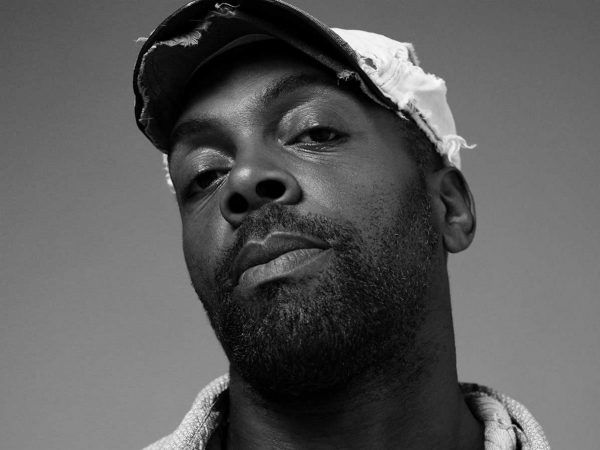
Andre Walker’s Collection 30 Years in the Making

Fallen From Grace, An Exclusive Look at Item Idem’s “NUII”

Breaking the System: Backstage Paris Fashion Week Men’s Autumn/Winter 2017

A Modern Manufactory at Mykita Studio

A Wanted Gleam: Backstage Milan Fashion Week Men’s Autumn/Winter 2017

Fashion’s Next, Cottweiler and Gabriela Hearst Take International Woolmark Prize

Beauty in Disorder: Backstage London Fashion Week Men’s Autumn/Winter 2017

“Dior by Mats Gustafson”

Prada’s Power

George Michael’s Epochal Supermodel Lip Sync

The Search for the Spirit of Miss General Idea

A Trace of the Real

Wear and Sniff

Underwater, Doug Aitken Returns to the Real
Joshua Glass—Do you remember when you first became familiar with the other’s work?
Junot Díaz—I came from a real dead-zone—intellectually, politically, historically—and my first semester at Rutgers University was a few months after “Beloved” won the Pulitzer Prize for Fiction. Fastidiously, my absolute first class assigned “Song of Solomon.” I had never heard of Toni Morrison and I didn’t understand anything other than what my neighborhood taught me. That book was an intellectual, artistic, and spiritual singularity. If I think of what defined my college life, it begins with that class and that book, but at first I resisted: I remember looking at the syllabus and asking my teacher, “Why are we reading so many women?” The professor, laughing her ass off, told me to just read the books and ask her the same question a couple of weeks later. Of course, I came back hat in hand, absolutely humiliated, ashamed of myself, and aware of what would be asked of me at university.
Toni Morrison—I like the notion of being suddenly thrown into a text, with no information or predilection. It’s like being thrown into the sea and then learning to swim.
Junot—That’s what it felt like!
Toni—I believe I read your short stories first. What attracted me to those stories or whatever I read—I have short-term memory loss, you have to understand, I’m 86, so I get to forget things—was how startled I was by the language. It was so real and intelligent and wild. There was the wildness as well as some deep intelligence, and I didn’t think the combination of the two was possible in recent literature. Yours struck quite immediately and it wasn’t just the combination of words from Santo Domingo or curse words or grammatical [uniqueness]. It was provocative but there was something so human in the nostalgia and in the knowing of human beings. I don’t know anybody who writes like that, the way you do, but it’s very fetching, and I look forward to more, and more, and more.
Junot—I’ve got to get on my writing game, I’m just way too slow. Ultimately, I’m the slowest writer I know.
Toni—Speaking of slow, I’ve been writing a book for about two years now, and I think it’s wonderful. I have about 80 pages.
Junot—To know that you have a new book coming out is like hearing somebody invented a new food group, so I’m very happy.
Toni—It is what really keeps me going because I’m limited, physically, and in other ways. Having to think and reform and invent sentences to go with the stories, as you know, that’s the trick. The process for me is just extraordinary. It’s like a blessing, in a way.
Junot—That’s beautifully said and feels very true to me.
“I can think of nothing that would probably be more sterile and more boring without the blood of the people who refused to not have their own art forms or their own language or their own way of being in the world.”—Toni Morrison
Toni—I didn’t start writing until I was 39 because I didn’t think that there was anybody around that was going to write what I was interested in. I thought maybe I’d write it myself. It was a short little book called “The Bluest Eye,” and it took me about four or five years to get through it. It was knowing that something was not there that compelled me.
Junot—That moment when a writer forces some agonizing truth about who we are from their minds or their experiences or their lives.
Toni—It’s difficult, but it’s the difficulty that makes your day or life.
Joshua—You both have written indelibly about black diasporic bodies searching not only for identity but also home. Where do the very different senses of africanidade come from?
Toni—My so-called cultural familiarity is highly Southern. I was born and raised close to Cleveland, Ohio, which was full of immigrants because it was a field town in the 30s. There was one high school, and I came from parents who were born in Alabama and Georgia that carried those cultures with them and mixed with other people from other countries and nations. It was only when I went away to Howard University, and later when I traveled with a peer group down South, that I began to fall in love with black culture—the way we spoke and moved and sang and thought. Enormously, I was impressed with the love, the sharing of misery, and the supporting of one another: It was so different from what I had known about, except through things that my mother and father had mentioned or described, so it stayed with me. Not just the language, the sense of control within chaos, the chaotic world that they lived in; the fear that they must have held, but how they refused to let that circumstance squeeze them and keep them from loving one another or sharing with one another or protecting one another. That was the part that amazed me.
Junot—The neighborhood I grew up in was another one of these spaces of unrecognized cosmopolitanism or unrecognized local cosmopolitanism where there were these [elements] that brought a bunch of groups together for whatever reason. For the case of that specific part of Ohio it was steel mills and industrial jobs, and where I was in New Jersey it was very, very cheap housing next to a landfill. It wasn’t next to our neighborhood or on the side of it; you had to literally go through our neighborhood to get to it. What this meant was that the people living there were starters, first-rung on the ladder. I think that neighborhood is how I first saw the United States: a place that has brought every kind of person from all over. I lived with Egyptians, I lived with people from Uruguay, the Philippines, and the back South—“the Bammers” we called them—the Northeast African American communities were Jamaican, and a lot of my ideas around what we call the “African diaspora” began to form in that place. There I was, this very light-skinned person from an African-diasporic family from a predominately African-descendant country, and it wasn’t until I came into contact with these folks [that] I became acutelyaware of this. There is a lot of denial around blackness and what our community is and how we look in the Caribbean. It was very important for me to suddenly encounter—especially for me because I moved there in 1974. I came into very emphatic contact with a lot civil rights-influenced black Americans and, if it had not been for that contact, I would have been a lot more lost than I already was.
Toni—I always wonder what this country would be like with no African or black influence. Suppose they had never come here. Suppose there had never been the necessity for labor that pulled those slave ships. Suppose there had never been colonization of the Caribbean. Suppose the Europeans or the Brits had just done it on their own. What would the world be like? I can think of nothing that would probably be more sterile and more boring without the blood of the people who refused to not have their own art forms or their own language or their own way of being in the world, whether it’s West Indies or Mexican or just black people from all over. It sounds a little depressing: Can you think of what the music would be like without the influence of black musicians? In days such as this, the benefits—the huge benefits—that so-called immigrants or slaves have contributed to this country is enormous. It may be disregarded in some ways or maybe even made into fear in some places, but the fact of the matter is that it is the lifeblood of the country; it’s real, living life, and the blood that flows through our veins. That reminds me, by the way, of your writing: It’s so alive, and bloody, and sweet, and true.
Junot—Truer words. Not about my work, but about that vision of where this country would be without our presence and contribution. In some ways, the sterility and destruction would perhaps be all there is. What was laid to waste and erased, and in many ways we were deployed and our creativities are deployed to mask the crime, even as we deployed them to celebrate, to survive, and to make ourselves possible.
Toni—I mentioned earlier about traveling around the South as an undergraduate student, doing plays at black colleges. One time we arrived at what the faculty members thought was a hotel but was really a whorehouse, so they had to find a place where black people could sleep over in the South. You can imagine what a job that was, and one of them went to a phone booth, got a telephone book, and ran his finger down it to find black churches—they were readily obvious by their names. He called up one of the pastors in the middle of the night and the pastor gave a list of places we could go to and be taken care of. We went to four different houses to put all of us up—nine students and three faculty members—and I remember these black men and women who opened their doors to us strangers. That night I slept on the finest sheets: so white, so clean, starchy, and fragrant, because they dried them not on the clothesline but on bushes and juniper so the odor was still there. They fed us, they told us where to stay. We tried to give them money, but they wouldn’t take it. The warmth, the care, and the love that I found in the deep rural South was striking to me. I felt so comfortable, so safe, and so much at home, and that is the part of blackness that I took home to Ohio, and all the rest of my work in life, was the basis for the books. No matter what happened, whether people lived or died over good or bad, the hand that I was holding under the book was that generosity and that kindness and that love in the middle of very, very hostile outsized environments that were simply whiteness.
Junot—We can encounter all sorts of horrors and hardships in text, but, deep down in the D.N.A of the writing, we feel the language of the incident: a sensibility that feels no generosity, that acknowledges no love. I always had this sense of your work that we enter hell and can find the courage to withstand it because the person guiding us, as you’ve described so lyrically, has love in their heart for us. We have a sense of that no matter what terror would unfold before us, there is something there for us. That is acknowledgment—something that is gentle, something that is truly beautiful—and it’s seen in the work.
Toni—Nobody is born powerfully racist. The purest and most fierce love that exists is between children when they are very young, before they get the characteristics they need to survive. It’s almost weird and strange to think of the intensity of a love without sex, without acquisition of money, or without these things. What is it like to just do that, to just be in love?
Joshua—You both have spent many years in higher-level education and, Ms. Morrison, you served on the National Council of Arts from 1980 until 1987. What do you make of the many threats to the humanities from our current administration?
Toni—Something that I make everybody who comes to my house do is take the Oxford English Dictionary and look up the word “trumpery.” There are about eight definitions in that book and all of them are applicable to our current president. I’m not going to read them out to you, but if you look it up, you will be stunned.
Junot—This is the most recent excrescence of a very long, sort of vomitous set of policies and ideologies and conservative schemes. It’s so deeply troubling for someone like me, like most the rest of us who grew up in the public education system and who owes such a debt to public educators, to see this sacred calling be demonized and treated so cynically, and to be attacked by people who seem to be at their hearts opposed to what public education stands for. If we think about the arts and the role arts play in civic society, we’re in the same damn place. What’s the use of a public sphere in a civic society if our artists are not protected or treated well? We’re at the hands of people who clearly despise educators and artists and [who] view both rightfully as a threat to their cynical, cannibalistic manipulations.
Toni—This is repetition of what evil empires do: the burning of books, the killing of artists, the slaughters, the gulags. All of that is in the history of the world, but it’s interesting that one of the earliest things that such dictator-type people do is go straight for the artists, for information, and for intelligence. We seem to be at the beginning of that process, of the destruction of art, and honesty and truth is just melting away, at least publicly. The good thing, however, is that we are not alone: [look at] all those people marching for all sorts of reasons, going into meetings with their representatives, screaming at them. Something is alive and is refusing this control that I see. On the one hand, I’m alarmed, but not for long. All that I learned traveling in the South—with people who were surrounded by lynchers and nevertheless remained strong and generous, helpful, and very human—is applicable to what I see happening now. There is this movement of people who refuse to change and become objects or subjects of somebody else’s control.
“What’s the use of a public sphere in a civic society if our artists are not protected or treated well?”—Junot Díaz
Junot—Nothing has given me more hope and nothing has given me more energy.
Joshua—In regards to your work, what else inspires you? How do you continue to move forward?
Toni—I was roaming around the house [recently], and I kept hearing a sentence every now and then, and it sounded so stupid. It was, “I put the cup on the windowsill to catch the blood.”
Junot—What?
Toni—[Laughing.] It wouldn’t leave me alone! It sounded incoherent. Every now and then, I would hear this strange, awkward sentence. So I decided, instead of hearing it, I would write it down, and I did. And another sentence followed, and another, and another, and I covered a page describing this boy who was mute, but who heard everything. Everything. So loud that he had to wear earmuffs when he went outside. Suddenly I thought it was a great beauty that I could write what this mute could not say. That was a knockout. I’ve never had a book shape itself that way and, of course, what I describe in my 80 pages or something about that child and his friends, et cetera. It’s so compelling and slow, but this is the first time I have heard something that translated into the beginning of a text or book. Isn’t that interesting?
Junot—That’s wonderful. And eerie. I don’t want to say too much about it, but they also say the openings reveal the process, and there is Ms. Morrison with the cup, collecting the drops of blood. It’s really extraordinary and very generative.
Toni—Usually I see something or imagine something, but I never had some voice that I didn’t know where it was going to go—now of course, it’s very clear to me.
Junot—I don’t know what’s wrong with me, but I’m often in the end finding myself turning to that which I’m so avoiding wanting to talk about or write about. My inspiration tends to be when I can no longer expend the energy to avoid. I run myself silly, and when I can no longer defend myself against the story, the story begins. It’s a long process. If I wasn’t such a scaredy cat, I’d be more likely to embrace these whispers from within. I’ve always been more of a Howard and Buglar; I hear the ghosts in the house and I run as far away as I can knowing that I am never going to escape them, so I go the long way around and sooner or later I end back up at 124.
Toni—Exactly. [Laughing.] One twenty-four.


